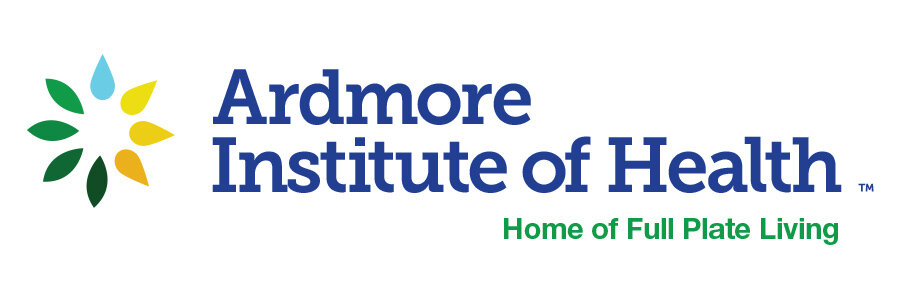Enter keywords to search AIH news and articles.
News

A Fiber Food Worth Tooting About
The musical fruit has a lot more to offer than gas.

Ardmore Pickleball (PB) Updates for Ardmore Institute of Health
Read the latest updates on the Ardmore Pickleball program.

Health Benefits of Olive Oil
This famous monounsaturated fat helps lower risk of heart disease and makes a healthy substitution to improve your health.

Get Moving, Go Green!
In order to optimize your ability to stick with regular physical activity, try to enjoy your favorite types of exercise outdoors in nature, whenever and wherever possible.

Canned, cooked tomatoes can reduce the risk of prostate cancer
Cooked tomatoes may reduce the risk of prostate cancer according to a recent study conducted by researchers at Loma Linda University Health.

Are Non-Dairy Cheeses Really Healthier?
With that interest there has been an explosion of processed plant-based foods, including non-dairy cheese alternatives, which have seen a hefty 45% growth in sales.(1) Are these non-dairy cheeses actually healthier than their dairy counterparts?

Green Gold – The gold standard in good nutrition
When it comes to promoting health and longevity, there’s a group of vegetables that’s as precious, valuable and enduring as gold...only they’re green. Green gold.

A 1/2 an Avocado a Day Keeps the Doctor Away
You’ve heard the familiar adage: “An apple a day keeps the doctor away.” But how does that saying also apply to an avocado, given that 80% of its calories come from fat, versus only 3% in an apple?

11 Ways to Curb Your Alcohol Intake
Medical experts agree: if you don’t drink, you don’t need to start drinking alcohol to protect your heart. If you do drink, stay within the recommended limits of moderate alcohol intake: one standard drink every 24 hours for women, two standard drinks every 24 hrs for men.

The Color of Your Pee is the Key
Intake enough water and other fluids throughout the day to keep your urine pale yellow (shade 4 or less), unless your doctor has told you otherwise. In order to help you do that, drink water throughout the day and eat more whole fiber-rich fruits, vegetables, beans and cooked whole grains, like oatmeal, brown rice and quinoa. In addition to all their many health-promoting nutrients, phytochemicals and fiber, these foods contain an abundance of water.

The Healthiest Way to Satisfy a Sweet Tooth
Fruit has long been touted as part of a healthy diet, and, yet only 1 in 10 adults eat the minimum recommended amount of fruit per day: 1½ to 2 cups.

How to Get the Most Out of Walking
Our friends at Harvard have suggested 6 Tips for proper walking form so you can get the most benefit out of the time you spend walking.

Ardmore Institute of Health Welcomes New Board Members – Drs. Rima and Vartabedian Join AIH Board
Ardmore Institute of Health is proud to welcome Drs Vartabedian and Rima to the Board of Trustees.

Are nuts part of a healthy diet?
In order to optimize your health, enjoy 1-2 one-ounce servings of nuts most days of the week, unless your doctor tells you not to.

What’s So Great About Walking?
The best kind of physical activity you can do is the kind you enjoy doing, because if you don’t enjoy it, you won’t do it over the long term. If you haven’t discovered your favorite activities, please consider walking.

Lifestyle Nursing
SWAU (Southwestern Adventist University), with the support of Ardmore Institute of Health and the American College of Lifestyle Medicine has led a series of convenings to advance the field of Lifestyle Nursing.

Blue Zones Project, Durant Team Announced
Sharecare, Inc. today announced that local staff positions have been filled to lead the transformation of Durant through Blue Zones Project® by Sharecare.

Sleep Like Your Health Depends On It
A good night’s sleep is increasingly being recognized as important as healthy eating and being physically active.

“Microbiome”, Small Friends in Low Places!
In order to optimize your gut microbiota and your health, eat an abundance of whole, unprocessed fiber foods, fruits, vegetables, beans, whole grains, nuts and seeds, at every meal, including probiotic-enriched foods and supplements when medically appropriate.

The Science Behind Full Plate Living
Full Plate Living promotes a high-fiber approach to healthy eating, highlighting the consumption of whole, unprocessed plant foods: fruits, vegetables, beans and legumes, whole grains, nuts and seeds. Besides being a rich source of dietary fiber, whole plant foods are abundant in essential vitamins and minerals, antioxidants, phytochemicals, as well as healthy fats and protein.
